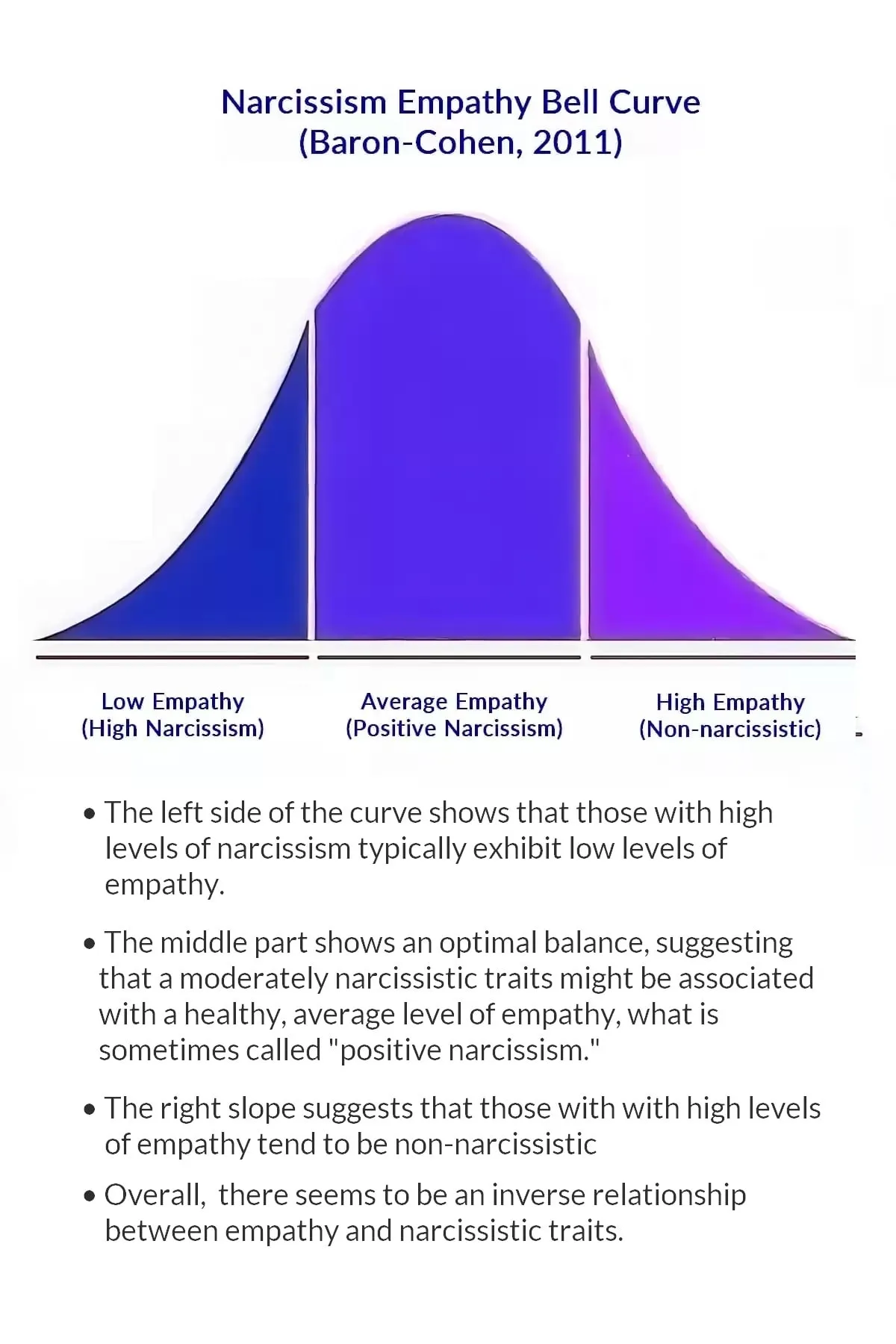Today's Sunday • 8 mins read
— by Dr. Sandip Roy.
Breaking up with a narcissist doesn’t always start your healing. Their emotional abuse can leave scars that cut deep and last long.
When you leave your narcissist, one of the first things you do is to question the correctness of your decisions.
- “Am I right?”
- “Did I do this okay?”
- “Would he have approved this?”
They drilled into you a habit of doing things to please their standards, making you feel that anything you did on your own was wrong.
There is more — read on.
What Happens After You Break Up With Your Narcissist?
1. You experience PTSD-like symptoms.
A narcissist’s subtle and blatant emotional abuse can profoundly impact your mental health, leading to symptoms similar to Post-Traumatic Stress Disorder (PTSD).
Look at it this way, you were the puppet, punching bag, and object of love, all rolled into one.
You may not go through the entire spectrum of PTSD, but may have these symptoms:
- Flashbacks and Nightmares: You might relive traumatic moments from the relationship in vivid, intrusive detail. Nightmares can leave you feeling terrified and emotionally drained. You may be afraid of going to sleep.
- Hypervigilance: Constantly being on high alert becomes your normal state. You jump at sudden noises, find it difficult to relax, and may feel like you’re always anticipating the next attack. You always try to read other people’s unsaid words and intentions. Even when everything is normal and good, you fear inside that “he” will come and destroy it all.
- Anxiety and Panic Attacks: Anxiety, overwhelmingness, and panic attacks are common. Sometimes, you may have long spells of breath-holding. Some tend to develop tinnitus (constant buzzing in the ears)
- Emotional Numbness and Detachment: To cope with the overwhelming pain, you might shut down emotionally, feeling disconnected from yourself and others.

Your mind refuses to believe that the narcissist is gone forever.
2. You ask yourself, “Do they miss me?”
Does the narcissist miss you?
They can make it seem like they miss you, but they don’t — at least not the person you were. Rather, they regret losing the benefits you brought, miss mocking you for your “stupidities,” and remember your need to win their praise.
Narcissists seek relationships for status and resources. This can feel deeply dehumanizing, as if you were simply an object to be used.
When a narcissist claims to “miss you,” decode it as missing what you provided: financial support, domestic labor, ego stroking, or any other supply.
Any remorse they feel is regret over resources left untapped. Many of them think, “I should have milked them more!”
Worse still, you feel like you miss them — but again, you miss the validation they got you addicted to, not them as the person.

3. You have a lingering need for approval.
Seeking validation is a natural human desire, but narcissists exploit it ruthlessly.
They train you to crave their approval, showering you with intermittent praise followed by harsh criticism, over and over. This “hot and cold” dynamic creates a powerful addiction, one that is hard to break.
You might find yourself desperately trying to win someone’s, anyone’s approval for things you do.
Your first thought after a landmark achievement is often, “She would be happy for this!” long after it should matter.
“Unconsciously, you still desire your narcissist’s validation years after they are gone.”
Remember, true validation comes from within. While support systems help your healing, you must begin to rewire your thinking to trust your own worth.
4. You feel confusion, indecision, self-doubt.
Narcissists specialize in distorting reality. They tell unbelievable stories that you want to believe.
Their gaslighting – the insidious manipulation that makes you question your own sanity – continues to haunt you even after the relationship ends.
Your narcissist could have deliberately undermined your self-confidence, making you rely on their skewed version of events.
You might find yourself replaying conversations, thinking:
- “Was I the unreasonable one?”
- “Did I misinterpret their words and actions?”
The lingering confusion becomes a form of self-torture. Breaking free from the narcissist doesn’t make this mental fog go away. Healing from this alone is a painful process.
Moreover, breaking up with a narcissist rarely gives you closure. Instead, painful questions haunt you:
- “Would it be better if you go back to them?”
- “Did they make you a better person?”
- “Were you insensitive to break up?”
You often wonder, what if they finally give you the recognition and validation if you go back?
These are signs of how badly they played with your ability to think straight. How they weaponized your trauma bond to hover over you even when you leave them.
And your self-doubt (“Am I good enough for anyone?”) feeds into the narrative.
Your narcissist’s constant criticism and control have made it hard to trust your inner voice. Sadly, this habit of questioning your choices and instincts can remain stubbornly difficult to break.
5. You finally realize that they never loved you.
One of the most shattering realizations after leaving a narcissist is that they never truly loved you.
You finally start to see the manipulations you endured, understand that you were merely a source of narcissistic supply, and realize that they have a natural inability to invest in intimacy.
You see though how this self-centered person faked emotional intimacy, all for a performance to keep you hooked. Their charm was a honey trap, their promises empty.
It can be difficult to accept this harsh truth, but it is critical for breaking free from their toxic influence.
Detach emotionally. See the narcissist for who they truly are: a manipulative user, incapable of genuine love or empathy.
Look at the research diagram below: Those with high narcissism cannot form genuine, empathetic bonds with others.

- Ritter (2011) found that narcissists show markedly reduced empathy and struggle to interpret others’ perspectives and emotions accurately.
- Campbell & Miller (2011) found that they view people as mere sources of attention, admiration, and resources (narcissistic supply).
3 Things Narcissists Do After A Breakup
1. They can react intensely.
When you discard a narcissist, be prepared for an explosive reaction.
Narcissistic injury is the hurt that a narcissist feels when their self-esteem or self-image is threatened or damaged, often making them feel deeply humiliated or angry.
They may fly into a rage, start smear campaigns against you, or even try to hoover you back into the relationship — not because they value you, but to regain control and supply.
Through sequential abuse, they altered your psyche: so now, you treat yourself as a lesser human than the narcissist. This can provide some sobering clarity about not going back to them.
2. They can move on without regrets.
Once a narcissist accepts that you are not going to return to them, they move on.
Now, moving on for a narcissist doesn’t involve learning from their mistakes or fixing their ways. One of their core traits is a distinct lack of accountability.
Do they regret any part of the hurt they caused in the relationship? Unlikely.
Their capacity to feel remorse or regret is limited by their self-absorption, where they are always the true victim.
3. They can feel threatened by your healing.
When you move on and thrive despite the narcissist, it wounds their fragile ego and their false sense of superiority.
Expect harassment or stalking, as narcissists pathologically seek to inject chaos and regain a perverted form of importance in your life. Focusing on your own healing is the best defense.
Further Reading:
- Narcissistic rage revisited— Krizan & Johar (2015).
- A Critical Appraisal of the Dark-Triad Literature — Vize & Miller (2019).
- The handbook of narcissism and narcissistic personality disorder — Campbell & Miller (2011).
Final Words
People understand what a narcissist is, even when they may not know the term “narcissist.”
“If you ask people whether they have ever met a narcissist, most tell you about a friend, boss, or lover who was completely self-centered. They describe a person full of paradoxes: Self-aggrandizing and self-absorbed, yet easily threatened and overly sensitive to feedback from others.
The friend, boss, or lover was emotionally labile and prone to extremes of euphoria, despair, and rage. They were often charming and socially facile while simultaneously insensitive to others’ feelings, wishes, and needs.”
— Morf & Rhodewalt, Unraveling the Paradoxes of Narcissism, 2001
Why would you go want to back to such a person and relive the horrors of The Narcissistic Abuse Cycle (IDDH)?
√ Also Read: How Narcissists Punish Their Victims: Their Devious Tactics
√ Please spread the word if you found this helpful.
• Our Story!
» You deserve happiness! Choosing therapy could be your best decision.
...
• Disclosure: Buying via our links earns us a small commission.
